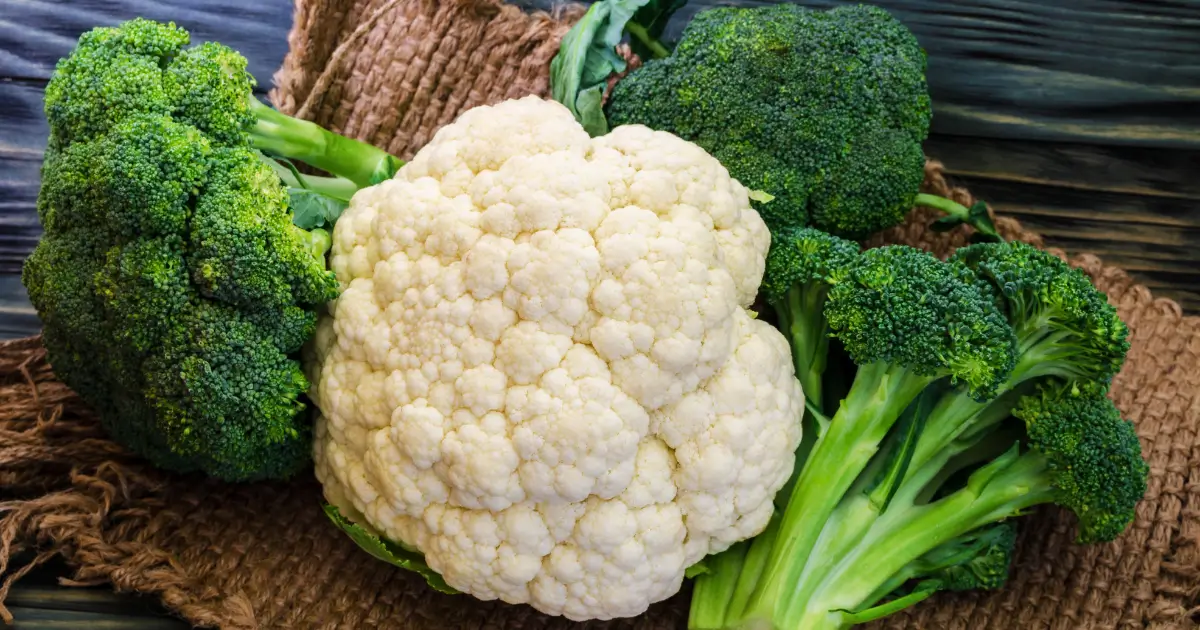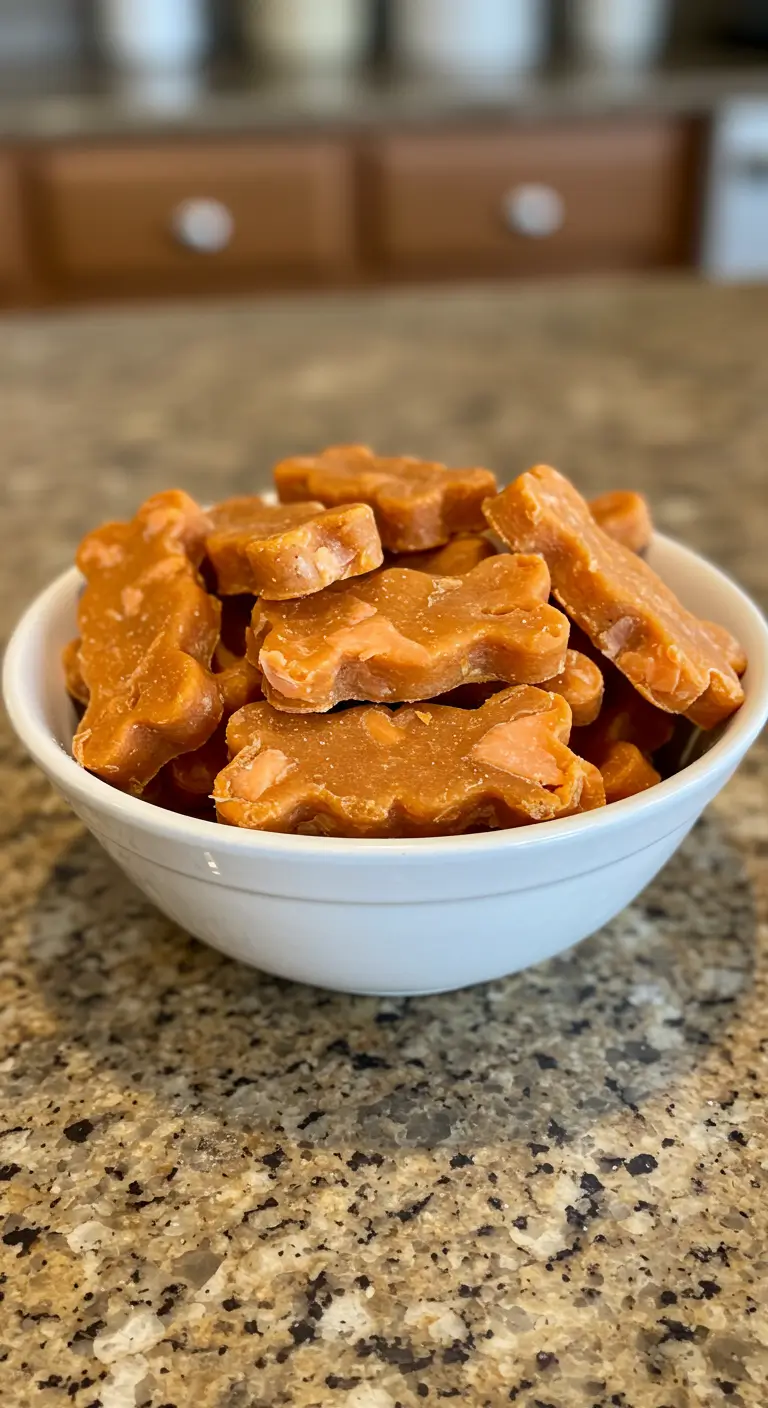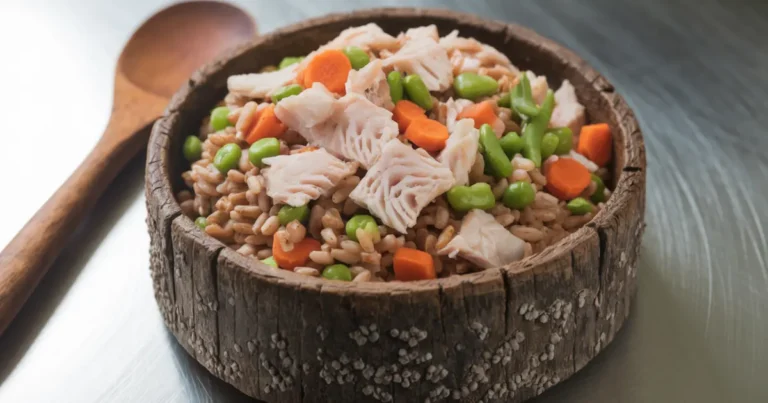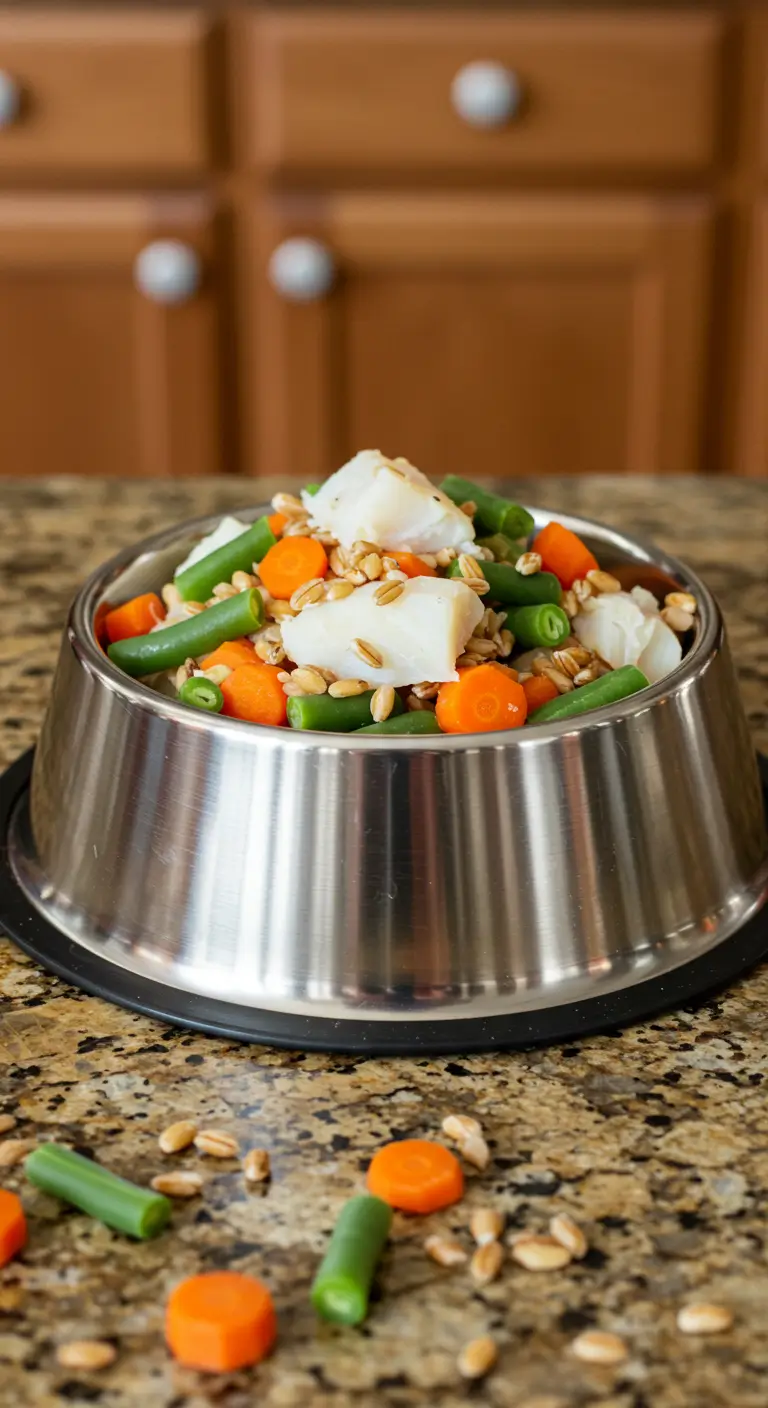Can Dogs Eat Broccoli and Cauliflower: 7 Safe Facts to Know
As a dog owner who enjoys cooking fresh meals, you might find yourself wondering if your furry friend can share in the nutritional benefits of the vegetables you prepare. Can dogs eat broccoli and cauliflower? These cruciferous vegetables are staples in human nutrition, but determining whether they’re appropriate for your canine companion requires understanding their benefits and potential risks.
Can dogs eat broccoli and cauliflower safely? In a nutshell, dogs can consume both cauliflower and broccoli in moderation. However, as with any human food you introduce to your dog’s diet, there are important considerations to keep in mind. When researching can dogs eat broccoli and cauliflower, it’s essential to understand how these vegetables might affect your dog and how to serve them safely. For comprehensive information about various safe fruits and vegetables for dogs, you can refer to our complete guide on what fruits and vegetables dogs can safely eat.
Table of Contents
1. Nutritional Benefits of Broccoli and Cauliflower for Dogs
When pet owners ask can dogs eat broccoli and cauliflower for their nutritional content, the answer is absolutely yes. These cruciferous vegetables pack an impressive nutritional punch that can supplement your dog’s regular diet:

Broccoli Nutritional Benefits
If you’re wondering can dogs eat broccoli and cauliflower for health benefits, broccoli contains several vitamins and minerals that can be beneficial for your dog:
- Vitamin C: As an antioxidant and immune system booster
- Vitamin K: Vital for healthy bones and appropriate blood coagulation
- Fiber: Aids in digestive health and helps maintain healthy bowel movements
- Potassium: Supports heart and muscle function
- Folate: Important for cell function and tissue growth
- Antioxidants: Help combat oxidative stress and inflammation
Similar to how artichokes provide beneficial antioxidants for dogs, broccoli contains compounds that may help support your dog’s cellular health and immune system.
Cauliflower Nutritional Benefits
For those researching can dogs eat broccoli and cauliflower, cauliflower offers a similarly impressive array of nutrients:
- Vitamin C: Boosts immune system health
- Vitamin K: Supports bone health
- Fiber: Promotes digestive health
- Choline: Important for various bodily functions, including cellular growth
- B Vitamins: Support metabolism and energy levels
- Antioxidants: Help fight oxidative damage
For dogs who enjoy variety in their diet, cauliflower can provide nutritional diversity similar to what arugula offers with its vitamin profile, but with a milder flavor that many dogs find more palatable.
2. Potential Risks of Feeding Broccoli and Cauliflower to Dogs
While investigating can dogs eat broccoli and cauliflower, it’s important to be aware of potential risks:
Isothiocyanates in Broccoli
Isomethiocyanates, which are found in broccoli, can irritate some dogs’ stomachs. The florets have greater amounts of these substances than the stalks do.
When fed in large quantities, isothiocyanates can potentially be toxic. But according to the majority of experts, broccoli only becomes an issue if it makes up more than 10% of your dog’s daily diet. At smaller amounts, most dogs can enjoy broccoli without adverse effects.
Unlike some vegetables, such as sweet potato skins, which contain beneficial fiber with minimal risk, broccoli requires more careful portion control due to these natural compounds.
Gas and Digestive Upset
Both broccoli and cauliflower are known for potentially causing gas in humans, and the same applies to dogs. These cruciferous vegetables contain raffinose, a complex sugar that can be difficult for some dogs to digest.
While not usually dangerous, excessive gas and bloating can be uncomfortable for your dog. Some dogs may also experience mild digestive upset, including:
- Increased flatulence
- Loose stools
- Stomach discomfort
- Occasional vomiting (if consumed in large amounts)
Dogs with sensitive digestive systems may have more trouble with these vegetables than others. If your dog has a delicate stomach, you might want to consider gentler options like cucumbers, which are highly digestible and less likely to cause gastrointestinal distress.
Choking Hazard
The firm texture of raw broccoli and cauliflower stems can present a choking hazard, especially for small dogs or those who tend to gulp their food without chewing thoroughly.
3. Safe Serving Sizes for Broccoli and Cauliflower
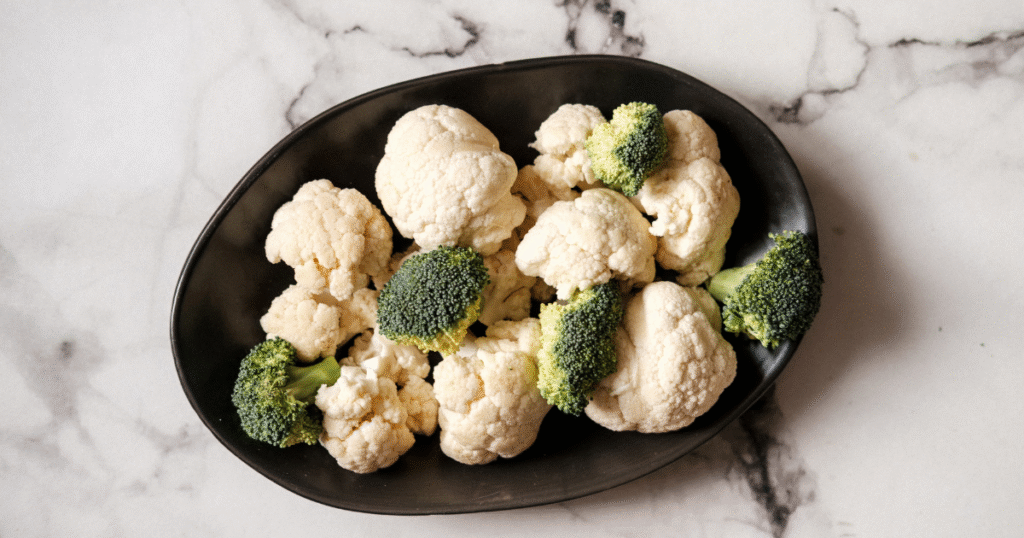
When adding broccoli and cauliflower to your dog’s diet, moderation is key. For pet owners wondering can dogs eat broccoli and cauliflower in appropriate amounts, here’s a general guideline for serving sizes based on your dog’s weight:
| Dog Size | Broccoli Serving Size | Cauliflower Serving Size | Frequency |
|---|---|---|---|
| Small (under 20 lbs) | 1-2 small florets | 1-2 small florets | 1-2 times per week |
| Medium (20-50 lbs) | 2-3 medium florets | 2-3 medium florets | 1-2 times per week |
| Large (over 50 lbs) | 3-4 medium florets | 3-4 medium florets | 1-2 times per week |
When researching can dogs eat broccoli and cauliflower, remember that these vegetables should never make up more than 10% of your dog’s total diet. The bulk of their nutrition should come from high-quality dog food formulated specifically for their needs.
4. Preparation Methods for Maximum Safety and Nutrition
When considering can dogs eat broccoli and cauliflower, preparation methods matter significantly. The way you prepare these vegetables can impact both their digestive ease and nutritional value.
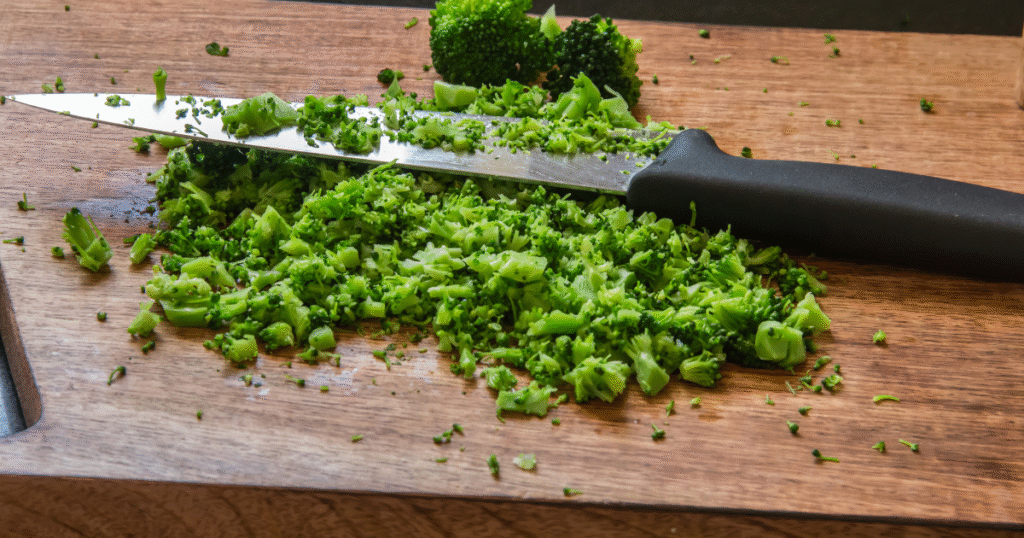
Raw vs. Cooked
For dog owners asking can dogs eat broccoli and cauliflower raw or cooked, the answer is that for many dogs, lightly cooked broccoli and cauliflower are easier to digest than raw. Cooking methods to consider include:
- Steaming: Preserves most nutrients while softening the texture
- Blanching: Brief boiling followed by an ice bath retains crispness and most nutrition
- Light boiling: Makes the vegetables very soft and easy to digest, but may reduce some nutritional value
Raw broccoli and cauliflower maintain their full nutritional profile but may be harder for dogs to digest and could present more of a choking hazard.
For dogs with sensitive digestive systems, similar considerations apply when deciding between raw and cooked jicama, which offers a crunchy texture but may need to be served in smaller pieces when raw.
Preparation Steps
Follow these steps for safely preparing broccoli and cauliflower for your dog:
- Wash thoroughly: Clean the vegetables to remove any pesticides or contaminants
- Remove tough stems: Cut away the toughest parts of the stalks
- Chop into appropriate sizes: Cut into bite-sized pieces suitable for your dog’s size
- Cook if preferred: Steam or lightly boil until slightly soft but not mushy
- Serve plain: Never add seasonings, oils, or sauces that could be harmful to dogs
Similar to how seaweed should be carefully selected and prepared before feeding to dogs, make sure to use only fresh broccoli and cauliflower and avoid any seasonings or additives.
5. Can Dogs Eat Frozen Broccoli?
In general, the answer to the question of whether dogs can eat frozen broccoli is yes. Frozen broccoli can be a convenient option and is typically just as nutritious as fresh. However, there are a few considerations:
- Thaw completely or cook from frozen to avoid potential choking hazards
- Check ingredients if using commercially packaged frozen broccoli – it should contain no added salt, seasonings, or preservatives
- Avoid mixed vegetable packages that might contain onions or garlic, which are toxic to dogs
Many dogs actually enjoy frozen vegetables as a cool, crunchy treat, especially during warm weather. Just ensure the pieces are appropriate for your dog’s size to prevent choking.
6. Can Dogs Eat Cauliflower Rice?
Is it possible for dogs to consume cauliflower rice instead of ordinary rice? Cauliflower rice (cauliflower that has been finely chopped or processed to resemble rice grains) is generally safe for dogs and can be a good low-calorie option compared to regular rice.
Benefits of cauliflower rice for dogs include:
- Lower in calories than traditional rice
- Higher in fiber and nutrients
- Good option for overweight dogs or those on restricted diets
- Suitable for dogs with grain sensitivities
When preparing cauliflower rice for your dog, follow these guidelines:
- Make it fresh at home or purchase plain, unseasoned varieties
- Cook it lightly to improve digestibility
- Introduce it gradually to monitor for any digestive upset
- Serve plain without butter, oil, or seasonings
7. Signs Your Dog May Not Tolerate These Vegetables Well
While most healthy dogs can safely enjoy moderate amounts of broccoli and cauliflower, some may not tolerate these vegetables well. When investigating can dogs eat cauliflower and broccoli, be aware of these potential signs of intolerance:
Watch for These Symptoms
After feeding your dog broccoli or cauliflower, monitor for:
- Excessive gas or bloating: Some gas is normal, but if your dog seems uncomfortable, these vegetables may not agree with them
- Diarrhea or vomiting: Indicates the vegetables are causing digestive distress
- Lethargy: Unusual tiredness after consuming these vegetables could signal discomfort
- Allergic reactions: Though rare, watch for itching, hives, facial swelling, or difficulty breathing
Stop giving broccoli and cauliflower if you observe any of these symptoms, and if they worsen or continue, speak with your veterinarian.
Key Takeaways About Broccoli and Cauliflower for Dogs
When considering can dogs have broccoli and cauliflower, remember these essential points:
- Both vegetables are nutritious additions to your dog’s diet when served in moderation
- Always keep portions small – these vegetables should make up less than 10% of your dog’s total diet
- For dogs with sensitive stomachs in particular, cook gently to facilitate digestion.
- Cut into appropriate sizes to prevent choking
- Introduce gradually to monitor for any digestive upset
- Never add seasonings, butter, oils, or sauces
- Discontinue if you notice signs of intolerance or digestive issues
Conclusion
Can dogs eat broccoli and cauliflower? Yes, most dogs can safely enjoy these nutritious cruciferous vegetables as an occasional treat or supplement to their regular diet. With their impressive array of vitamins, minerals, and antioxidants, broccoli and cauliflower can be beneficial additions to your dog’s nutrition plan when served properly and in moderation.
For pet owners who have been researching can dogs eat broccoli and cauliflower, remember that every dog is unique, and what works well for one may not suit another. Always introduce new foods gradually, monitor your dog’s reaction, and consult with your veterinarian if you have any concerns about adding these or other vegetables to your dog’s diet.
When exploring can dogs eat broccoli and cauliflower, and other vegetables, it’s important to have reliable information about various safe options. For more information about other vegetables and fruits that can be safely included in your dog’s diet, explore our comprehensive guide to safe fruits and vegetables for dogs.
FAQs About Dogs Eating Broccoli and Cauliflower
How should I introduce broccoli and cauliflower to my dog’s diet?
For pet owners researching can dogs eat broccoli and cauliflower for the first time, it’s important to start with very small amounts, finely chopped and lightly cooked. Offer just a piece or two mixed with their regular food, then gradually increase the amount over several days while monitoring for any digestive upset. This careful approach helps determine if your dog tolerates these vegetables well.
Are broccoli stems safe for dogs to eat?
When considering can dogs eat broccoli and cauliflower safely, note that broccoli stems are actually safer than florets because they contain lower concentrations of isothiocyanates (the potentially irritating compounds). To avoid choking, especially in smaller dogs, make sure to cut stems into small, manageable pieces.
Can puppies eat broccoli and cauliflower?
While not toxic, it’s best to wait until puppies are at least 6 months old before introducing broccoli or cauliflower. Puppies have more sensitive digestive systems and specific nutritional needs for growth. Before introducing any additional foods to a puppy’s diet, always get advice from your veterinarian.
Is cauliflower or broccoli better for dogs?
Both vegetables offer similar nutritional benefits, but cauliflower may be slightly gentler on a dog’s digestive system because it contains lower levels of isothiocyanates than broccoli. Some dogs may prefer the milder flavor of cauliflower, while others might enjoy the texture of either vegetable.
Can broccoli and cauliflower help with my dog’s weight management?
Yes, both vegetables are low in calories but high in fiber, which can help your dog feel full while adding minimal calories to their diet. When used as a partial replacement for higher-calorie treats or as a food topper, they can be helpful additions to a weight management plan under veterinary supervision.

